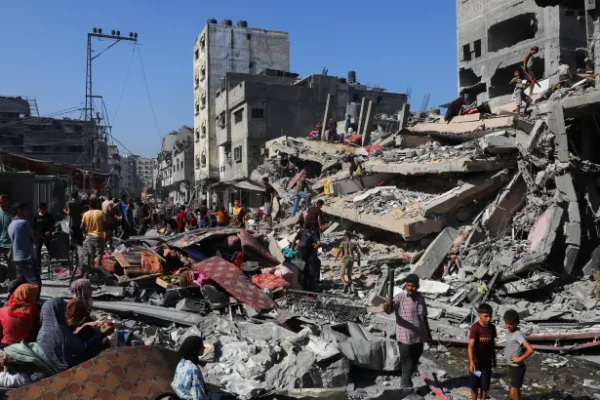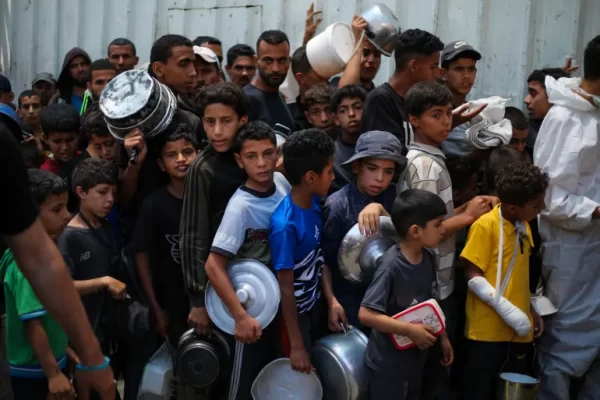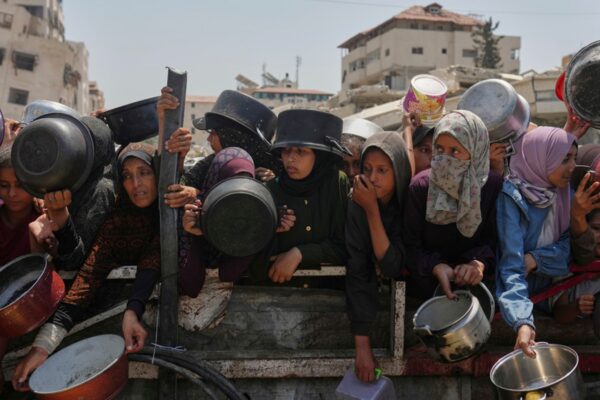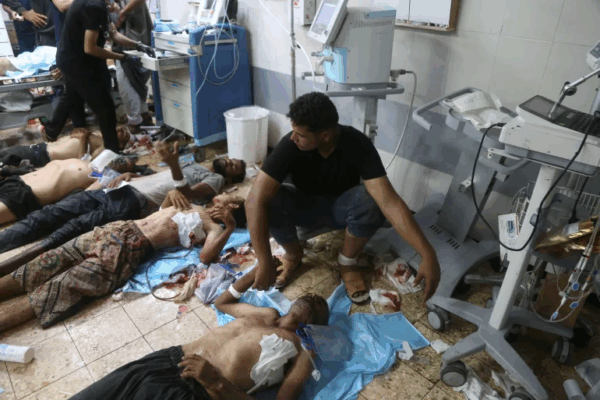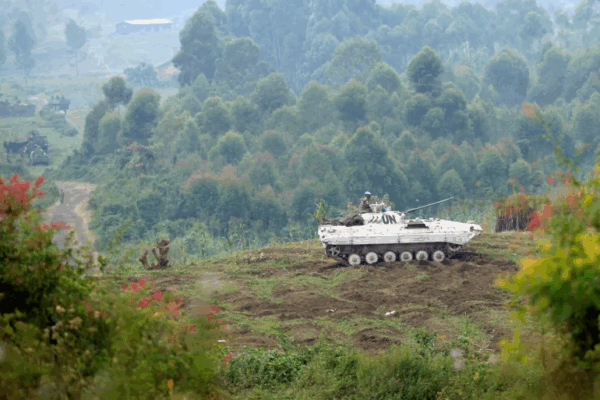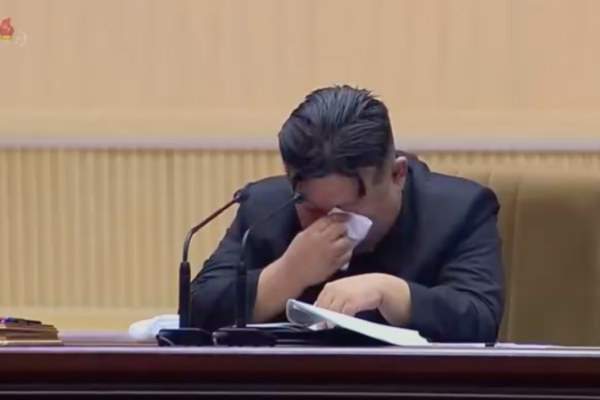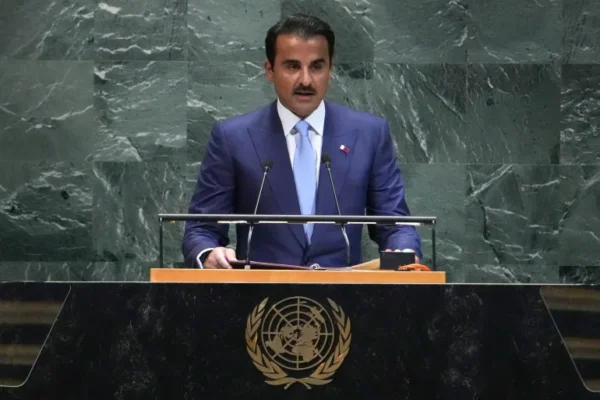
Qatar’s Emir Accuses Israel of Undermining Gaza Truce Talks at UN
Qatar’s Emir Sheikh Tamim bin Hamad Al Thani has sharply condemned Israel for a “treacherous attack” on Hamas leaders in Doha, accusing it of derailing ceasefire efforts and violating international norms during his address to the United Nations General Assembly on Tuesday. The emir warned that the September 9 attack “undermines any diplomatic efforts aimed at ending the genocide against the people in Gaza” and said it demonstrated that Israel has become a “rogue” state. The strike, which targeted Hamas officials in Qatar’s capital while they were meeting to discuss a ceasefire proposal brokered by the United States, was described by Doha as “state terrorism.” Although top Hamas leaders survived, six people were killed in what was seen as an unprecedented escalation. The attack took place in a residential neighborhood near diplomatic missions and schools. Qatar, a key mediator in the Gaza negotiations, said the bombing amounted to a political assassination. The emir said, “It is difficult to cooperate with such a mentality that does not respect the most minimum standards of cooperation,” adding that Israel simultaneously “negotiates with delegations” while plotting to assassinate members of negotiation teams. He accused Israel of attempting to render Gaza unlivable, “where no one can study or receive treatment.” Labeling Israel as a state “engaged in genocide,” Sheikh Tamim criticized it for branding all critics as either antisemitic or terrorists, a tactic he said “even Israel’s allies realise … and reject.” Drawing parallels to past global struggles, the emir likened the growing solidarity with Palestinians to the global movement against apartheid in the 20th century. His remarks came amid growing international backlash over the war in Gaza, where more than 65,000 Palestinians have been killed since Israel’s military campaign began in October 2023. Speaking earlier on the same day, U.S. President Donald Trump called for the war to stop “immediately,” while Turkey’s President Recep Tayyip Erdogan said silence in the face of the war amounted to complicity in “barbarity.” Jordan’s King Abdullah II described the Gaza war as “one of the darkest moments in this institution’s history,” urging world leaders to move beyond repeated condemnations and toward concrete action. “How long will we be satisfied with condemnation after condemnation without concrete action?” he asked. France and Saudi Arabia jointly convened dozens of leaders earlier this week to revive talks on a two-state solution, while several European nations—including France, Belgium, Malta, and Luxembourg—formally recognized Palestinian statehood. UN Secretary-General Antonio Guterres also spoke, defending international human rights standards and referencing a landmark UN Human Rights Council report that found Israel’s actions in Gaza constitute genocide. The U.S. and Israel have both rejected the report. Guterres stated, “We must choose human dignity and human rights. Human rights are not an ornament of peace, they are its bedrock.” He emphasized that respecting rights must go beyond rhetoric, calling for “justice over silence.” Sheikh Tamim concluded his speech by tying the September 9 attack to broader violations of the international order, warning that tolerating such behavior would erode global norms. “These rules are based on the maintenance of international peace and security and the respect for human dignity and state sovereignty,” he said. “If we allow violations to continue, it means allowing the rule of the jungle, where perpetrators and violators enjoy benefits just because they can.”


